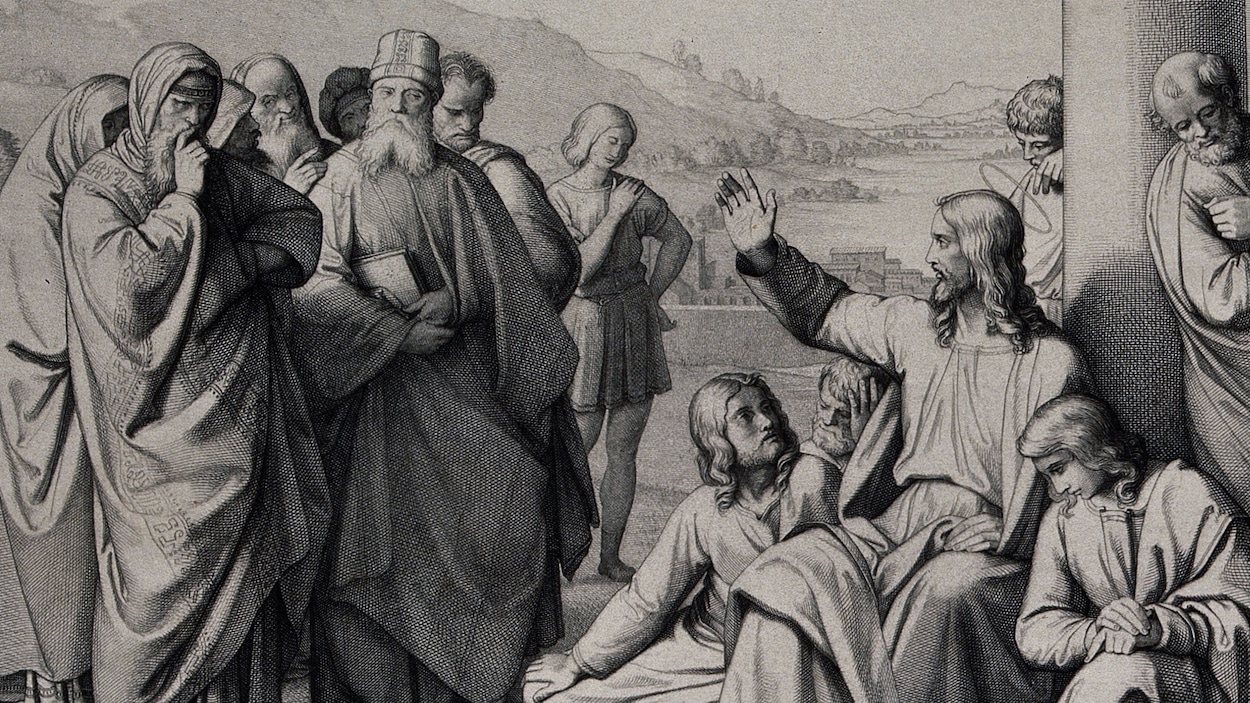Two construction workers, Mack and Fred, were arguing about religion while working on a job one summer morning. Mack was a non-believer, while Fred had just been received into the Church at Easter. Mack sneered, “You don’t really believe all those stories in the Bible, do you? For instance, that fable about Jesus turning water into wine—what nonsense!” Fred answered, “Well, I haven’t had much education in religion, so I don’t know about the water and wine. But I do know that in my house, Jesus has changed beer into milk.” “What are you talking about?” Mack exclaimed. “Beer into milk?” “That’s right,” Fred answered. “Because of Jesus, the money I used to spend on beer now goes to buy milk for my children” (Msgr. Arthur Tonne, Stories for Sermons, Volume II, #237).
Following Jesus, and living as active members of His Church, is supposed to make a noticeable difference in how we live; the conversion of an irresponsible alcoholic like Fred into a conscientious husband and father is but one example of this. Relatively few people were present to witness Our Lord’s miracle at the wedding in Cana, but all throughout history the world has had evidence of how His presence can have a profound effect on those who open their hearts to Him. The same thing is supposed to be true for each one of us today. We must be living signs that Jesus is able to turn sinners into saints—for this is the most important miracle of all.
We believe God is all-knowing, all-powerful, all-loving, and perfect in every way; even so, we always underestimate Him. That’s only natural; our finite, limited minds cannot truly begin to comprehend His infinite goodness and majesty. What we must try to realize, however, is that there are no limits to His ability to recreate and redirect our lives—as long as we allow this to happen. The passage from the Book of the Prophet Isaiah (62:1-5) was written while the Jewish people were in exile, and when their national suffering led them to wonder if God had abandoned them because of their sins. Inspired by the Holy Spirit, the prophet reassures them that “No more shall people call you ‘Forsaken’ or your land ‘Desolate,’ . . . [rather], as a bridegroom rejoices in his bride, so shall your God rejoice in you.” In 537 B.C., against all odds, the Lord led the Jewish people out of exile and back to their holy city of Jerusalem. Moreover, it was through them that God sent the world its Redeemer—and the miraculous survival of the Jews since then through 2000 years of worldly hostility, minority status, oppression, persecution, and genocide shows that they maintain a special place in the Lord’s heart.
The Spirit of God is able to do wonderful and amazing things—not only for His people as a whole, but also for individual believers. St. Paul testifies to this in his Letter to the Corinthians (12:4-11). He himself, in one of the most incredible conversions in history, was transformed from a fierce persecutor of the Church into her greatest missionary, and, in this passage, he speaks of how the Holy Spirit can give believers amazing gifts of wisdom, knowledge, faith, healing, mighty deeds, prophecy, and discernment of spirits. These life-changing blessings are available to those who humbly search for God’s truth and are meant to be used for the benefit of the entire people of God. A similar dynamic was at work in the Gospel of John (2:1-11). Jesus, at the request of His Mother, performed the first of His miracles. The wine He created directly benefited only those present at the wedding feast—but we’re told this sign “revealed His glory, and His disciples began to believe in Him,” and it’s through these same disciples that the Gospel began spreading throughout the whole world. The ultimate purpose of every divine action in the world is to deepen our faith—and once we believe in God, we’re supposed to help others open their hearts to this same blessing.
Many years ago, a missionary went into an army barracks and offered each of the soldiers a sheet of Scripture quotes on the importance of being baptized in the name of Jesus. One of the men rudely tore up the sheet and threw away the pieces. The missionary’s eyes filled with tears, but he said nothing and walked away. The tears in the man’s eyes got the soldier to thinking: “He’s sad about what I did; he believes this stuff; he cares about me personally.” These thoughts led the soldier to seek out the missionary the next day and apologize, and this began the process of his conversion (Knight’s Master Book of 4000 Illustrations, p. 121). The more people can see that our commitment to the Gospel is genuine, the more powerfully God’s grace can be at work in the world.
The Lord is asking us to be everyday missionaries, using every opportunity to proclaim His truth—sometimes by our words, and always by our example. Our tears, our compassion, our genuine concern for others, our willingness to forgive, and our availability to those in need, are supposed to show people that living according to the Gospel ispossible, that Jesus does have the answer, and that God’s grace can make a difference. Living this way requires that we be firmly rooted in humility; whenever we see someone who has badly messed up his or her life because of sinful choices, we should think, “There but for the grace of God go I.” This is more than a pious sentiment; it’s the absolute truth: without divine grace, our lives would be hopeless. In addition to making us humble, this profound truth should also make us very grateful, and always willing to share God’s love with others whenever we have the chance to do so.
Most non-believers don’t have the chance to see dazzling and unexplainable miracles, and they’re quite understandably turned off by phony Christians, but they may be attracted by our humble, loving, and consistent witness to Jesus. Our life stories may not be as dramatic as Fred’s, whose new-found faith in Christ converted him from a beer-drinking alcoholic into a loving husband and father, but the Lord has been at work in our lives in a wonderful and valuable way—and when we let His grace flow through us to touch others, the miracle of new spiritual life continues.








